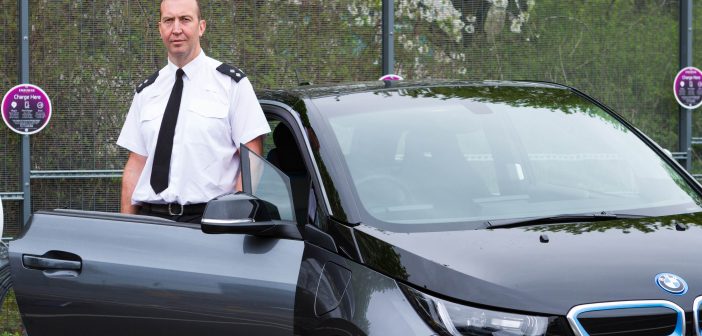Force will save £450,000 in 3 years by embracing electric
Inspector Andy Tester, who developed the plan, said: “It quickly became clear that stepping up a gear when it came to electric cars made perfect sense, both financially and environmentally. We are spending public money so it is vitally important that forces find pioneering new ways to transform the way things are done.There is a perception that electric cars are expensive but we have done the sums and with the help of government grants, the savings for the first three years comes to around £450,000.That type of saving, when every force across the country is looking to cut costs, is almost impossible to argue against, especially when you look at the environmental benefits too. Proof of this is how quickly we have seen other forces across the country look at our ideas – imitation is the best form of flattery after all.”
The facts
- The force has started by introducing 40 new electric cars into the general fleet, which is made up of pool cars and cars used by investigation teams however at this time the case has not been made for replacing response cars
- Electric cars will cost £1 to run per day for fuel compared with £3.50 per day for current cars
- The projected saving in emissions is 64,000kg of CO2 a year.
What happens when the electric runs out?
Readers wil no doubt be asking the question on everyone’s lips: “What happens when the lctric runs out? Will Police officers find themselves stranded miles out of town?” Apparently the cars have a back-up power source with Inspector Tester adding: “The obvious major drawback of electric cars is what happens if they run out of electricity during a journey, but in the unlikely event this did happen, these cars have a petrol back-up system that would last for 60miles. So that problem is instantly eradicated.
How and where will the cars be charged?
A small proportion of the initial £450,000 saving will fund the upfront cost of having to install more charging points at Southampton, Basingstoke and Portsmouth stations, but once in place, these will have a lifespan well in excess of 10 years.


